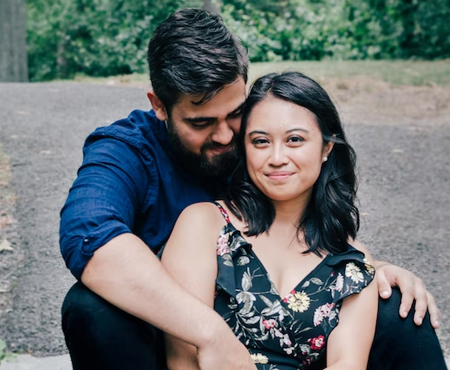You’ve just arrived home from a long day at work. You’re feeling drained and frustrated by a million little stressors or a few big ones. You drop your stuff on the table and sag into the couch, feeling small and helpless. Your partner comes in the room and immediately starts chatting away about how their day was or making lists of things that need to be done around the house. It’s all you can do just to keep yourself from falling apart, and you feel hurt that they seem to have missed how hard things feel right now. You need support, but you’re not sure what you need or how to get it.
There are a million ways we like to be supported, such as:
-
Getting space
-
Having quiet time
-
Getting a hug
-
Your loved one validating your feelings (“It makes sense that you feel frustrated/anxious/upset because…”)
-
Your loved sitting quietly with you
-
Your loved one taking a chore off your plate today
-
Your loved one distracting you (“You’ll never believe what the cats did earlier…”)
-
Getting advice
-
Anything BUT advice
Looking at this list, what are two or three things you’d like for your partner (or other loved one) to do when you’re feeling upset? Keep in mind that humans are complex creatures, and the way we like to be supported can change depending on the day, the situation, etc. Yesterday you wanted space, but today you feel ready to talk about the stressful conversation you had with your brother.
So, what’s the ‘one simple trick therapists love’ for getting the support you need?
Ask for it.
Ask your partner directly and in the moment for what you need. As much as our partners love us, they can NOT read our minds and will not know how to support us if we don’t tell them what we’re needing.
“Hey, honey, I had a pretty rough day at work today actually. It would be really helpful if you could…
-
Ask me how my day was.”
-
Give me some time to just be quiet for a few minutes, and we can talk later this evening.”
-
Come and give me a hug.”
-
Take care of doing the dishes tonight, please.”
-
Just come sit with me and be close.”
Each of these examples is in the moment, specific, and direct. We’re not apologizing for having a need, or beating around the bush, or waiting for our partner to notice and ask us what’s wrong. We’re also being gentle and respectful; we’re not blaming our partner for not having noticed our mood or magically anticipated our needs already.
You may be asking, “But shouldn’t my partner already know what I need, if they really love me?”
Not necessarily! A lot of times, it’s hard for us to figure out what we ourselves need, never mind someone else guessing correctly. We also tend to support others the way that we like to be supported, which is why your mother may tell you to pray when what you really want is for her to listen and say something validating. Praying helps her when she’s having a hard time, so she logically (but incorrectly) thinks it may help you.
Very often our partners are ready and willing to support us however we need to be supported, but they need our help in knowing what that is. Expecting them to mind-read your needs is setting you both up for failure and disappointment. It’s faster, more effective, and less confusing to simply ask for what you need.
Once you’ve done it, do it again!
This is not a one and-done situation, where you tell your partner what you need once and then never have to do it again. They will need you to tell them again and again.
Here’s a real-life example: When I’m talking to my husband about something stressful, he sometimes starts talking about something similar that happened to him, because he feels that showing me he relates is helpful. What I often really want is for him to say something validating about what I have just shared with him, so I politely pause him, tell him I appreciate him trying to support me, and let him know “I’d really love it if you could say something validating about what I just said.” And he’s happy to do it–every time.
Find balance, feel at peace. Reach out and connect with an Austin EMDR Therapist today.


